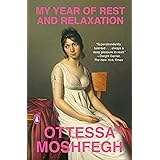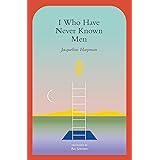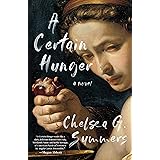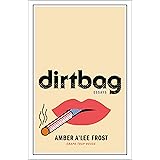
Download the free Kindle app and start reading Kindle books instantly on your smartphone, tablet, or computer - no Kindle device required.
Read instantly on your browser with Kindle for Web.
Using your mobile phone camera - scan the code below and download the Kindle app.

OK
 Audible sample Sample
Audible sample Sample 


Cherry Hardcover – February 28, 2019
Hammered out on a prison typewriter, Cherry marks the arrival of a raw, bleakly hilarious, and surprisingly poignant voice straight from the dark heart of America.
- Print length336 pages
- LanguageEnglish
- PublisherJonathan Cape
- Publication dateFebruary 28, 2019
- Dimensions5.67 x 1.26 x 8.74 inches
- ISBN-10178733094X
- ISBN-13978-1787330948
The Amazon Book Review
Book recommendations, author interviews, editors' picks, and more. Read it now.
Similar items that may ship from close to you
Product details
- Publisher : Jonathan Cape (February 28, 2019)
- Language : English
- Hardcover : 336 pages
- ISBN-10 : 178733094X
- ISBN-13 : 978-1787330948
- Item Weight : 15.1 ounces
- Dimensions : 5.67 x 1.26 x 8.74 inches
- Customer Reviews:
About the author

Discover more of the author’s books, see similar authors, read author blogs and more
Customer reviews
Customer Reviews, including Product Star Ratings help customers to learn more about the product and decide whether it is the right product for them.
To calculate the overall star rating and percentage breakdown by star, we don’t use a simple average. Instead, our system considers things like how recent a review is and if the reviewer bought the item on Amazon. It also analyzed reviews to verify trustworthiness.
Learn more how customers reviews work on AmazonReviews with images
-
Top reviews
Top reviews from the United States
There was a problem filtering reviews right now. Please try again later.
Mr. Walker’s style of writing, short, quick sentences some how grab you in a way that’s hard to explain. The book has an almost hypnotic effect, it lulls you into turning the page. You just keep going. Personally, I couldn’t stop. I only meant to read 20 pages and I read the whole book in one sitting. It just pulled me deeper and deeper into the mind of this lost yet oddly sweet, disconnected kid. I was rooting for Cherry the entire time regardless of how sure I was the outcome would not be a happy one.
What’s amazing is there’s a numbness to the book and how Cherry travels through the world, which should make it a challenging read, yet the expressed humanity and oddly poetic writing somehow made it a real page turner. Nico Walker is definitely a writer to watch out for.
Ironically, he tries to break his inevitable fall by joining the military. That's what his kind--the ones who are lost without values or direction--often do in the hopes of having someone else impose the discipline and direction upon their otherwise too weak and inept selves. Of course, his stint in the army and his tour in Iraq do not reform his character, nor do they redeem him of his already long list of crimes against himself and his love objects (the young women in his life). What he experiences in war, though documented in his usual first person narration, happens more to others than to himself. He admits he's a fuck-up as a medic and seems to blame the army for not preparing him better. That may be the case, but by this time his credibility has sunk as low as his character.
Upon return to civil society, he continues rejecting opportunity and civility itself, spiraling on his continuum of addiction and misanthropy, bringing the woman he appears to love down with him. That he ends up robbing banks to support their mutual addiction to whatever mind and body altering drugs they can get from any available source is not surprising given the decline from just below normal adolescent development to subnormal adulthood precipitated by lack of self-responsibility.
That this novel has been heralded as a modern classic debut is not surprising, for the narrator tells his story with a degree of ownership of his demise as a human being. A reader may not enjoy the story of the dregs of society, but this story certainly qualifies as proof positive that what is lacking in character development in the home needs be addressed elsewhere if this society is going to save young people from their base inclinations. Public, secular schools run by well-educated, respected, value-centered teachers who love young people and wish to serve this nation must be recruited to fill the void left by parents not doing the job, abdicating their duty for whatever reason.
The tragedy of human waste is the main theme of Cherry. And of our time.
Nico Walker has accomplished something truly special with his debut novel. The book reads like a casual reflection on a turbulent, haunting past. Nico's protagonist is pragmatic and honest, both about his place in the world and his own shortcomings. As the author admits, the likable side of the main character was injected via edits - Nico does not see himself as a hero in this story.
Overall, this book may be the first great classic of the opioid epidemic. Although some compare this to Hemingway, and other war focused stories, the comparison falls short. While Hemingway forced grandiose spectacle into his books, Nico takes a more micro-focused approach. He talks about the daily grind, the suffering, the things that soldiers do to make up for the traumas they experience on the ground. These inclinations transfer into private life, where the main character is incapable of integrating into society, but knows that the high is divine.
The negative reviews seem to focus on the book's approach to describing soldiers. Some reek of jealousy that a soldier would "sell out" his compatriots in such a revealing way. In the book, the soldiers seem incredibly human, being put into extraordinary situations and responding in whatever way they can. However, they also commit atrocities and terrible things. From every single account I've heard from my veteran friends that have spent time in Iraq, this is accurate. There are none of the typical Hero's Quest characters in this story; every single person that is mentioned is deeply flawed. This is the magic of the story. Throughout all of the debased actions that the characters pursue, there is a strain of humanity running through it all. You FEEL the struggles of the addicts in the stories, and you can understand the choices being made as requisite at the time.
Instead of simply seeing these veterans and citizens as dope fiends, you can feel the struggle of their existence through their hopes, dreams and attempts to be functioning members of society. As in life, most of these efforts prove fruitless and the cycle of addiction takes firm hold. This has been the most revealing look into a part of society that I have no experience with that I have ever come into contact with. The book is highly recommended.
Top reviews from other countries
Cherry is basically a brilliantly accomplished work of neo-realism, which supplies a very plausible account of how a lot of young Americans at the lower end of the social scale live their lives. It’s also probably the greatest war novel to come out of American writing since that generation of writers who served in the Second World War and published fiction like The Young Lions and The Naked and the Dead.
The prose is stripped-down and laconic. It creates a world which is simultaneously both bleak and comic (one chapter begins: “There was nothing better than to be young and on heroin.”) This novel is not for readers who like elegant polished writing, plots as perfect as a jigsaw, and affluent characters whose appearance, clothes and homes are described in exquisite detail. Nico Walker’s characters have no inner lives, apart from the narrator. They have crappy jobs and eat junk food. They exist largely as names and dialogue. There is an emotional blankness as one thing follows another: more sex, more drugs.
The central section of the novel, set in Iraq, is remarkable. It shows the reality of the American occupation. Bored troops pass the time taking drugs or watching porn or torturing mice. One female soldier sells herself for dollars. The troops look forward to killing Iraqis. Some hustle for a medal they don’t deserve. One thing happens after another but nothing adds up to anything. People quarrel. People lose limbs or die. A soldier called North, disappointed that he’s missed the chance to kill anyone, fires his weapon across a river into an island overgrown with date palms: “That was just North acting out.” It’s a futile gesture which calls to mind the ship firing blindly at the African coast in Joseph Conrad’s Heart of Darkness. Another scene involving cheerleaders visiting the troops is reminiscent of a scene in the movie Apocalypse Now.
The prose is stripped-down and laconic. The novel name-checks two writers - J.D. Salinger and Kurt Vonnegut - who were plainly inspirational for the deadpan, emotionally distanced voice of the narrator, and for the whimsy and irony that nudges the surface of the action. If you like your comedy very bleak and very dark than you’ll enjoy this book, which is often painfully funny. I found it far more compelling than almost everything which passes for literary fiction nowadays. But if your idea of a good novel is something by Hilary Mantel, Ian McEwan or Kazuo Ishiguro, then Cherry probably isn’t for you. It is not a comfortable read or one which offers relaxing beautifully written entertainment and a gripping, page-turning plot. Cherry is a picaresque tale of daily survival involving lives which don’t seem to be going anywhere. It is also probably the first genuinely classic novel to come out of the twenty-first century United States of America






















